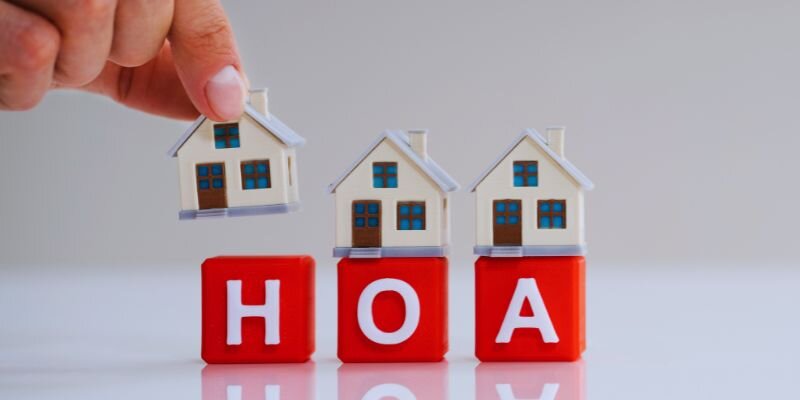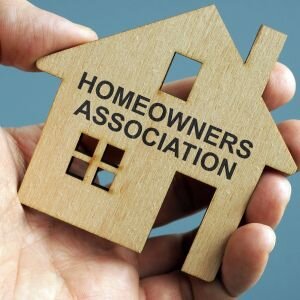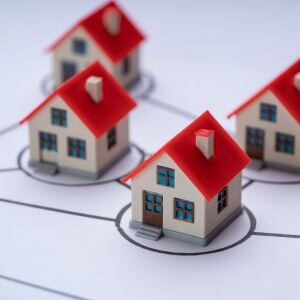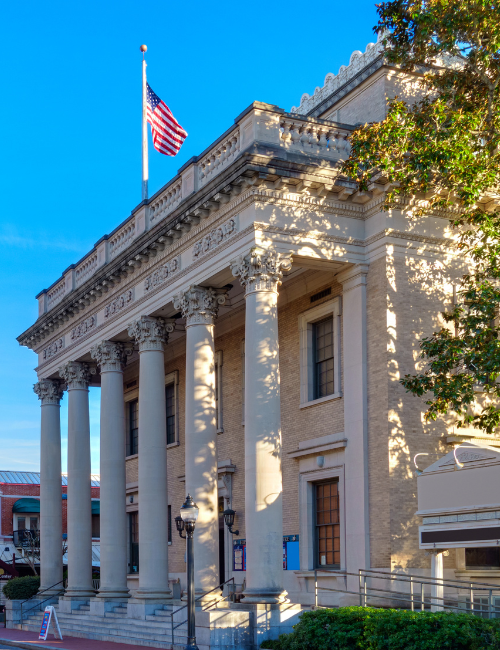
Understanding Homeowners Associations (hoas) in Gainesville, Florida
There are a lot of homeowners groups (HOAs) in Gainesville, Florida. They help keep property values high and shape the neighborhoods there. The rules and laws for these groups are set out in governing documents, most often the covenants, conditions, and restrictions (CC&Rs).
When purchasing property within an HOA, homeowners automatically become members and are required to follow these guidelines. The main purpose of an HOA is to preserve community standards by overseeing common areas, enforcing design rules, and managing upkeep that benefits all residents.
Membership also comes with financial obligations. Homeowners pay regular dues or assessments to support these services. However, failure to pay dues or ignoring CC&R rules can result in fines and even foreclosure in some cases.
Florida law gives HOAs broad authority to enforce compliance, which can include placing liens or pursuing legal action. Understanding these powers and the legal framework in which HOAs operate is vital for Gainesville homeowners who want to protect their investment and avoid unnecessary disputes.
The Benefits and Drawbacks of Living in an Hoa Community
There are some good things about living in a Gainesville HOA neighborhood, but there are also some bad things. On the plus side, HOAs usually take care of nice features like pools, parks, and gated gates that raise property values and make the neighborhood feel stronger. Common areas and safety features that are regularly kept make the whole place a better place to live.
At the same time, HOAs enforce rules and restrictions to ensure properties are consistent and well cared for. While this helps protect values, some homeowners may see it as limiting. Common frustrations include restrictions on landscaping, exterior paint colors, or modifications that otherwise reflect personal style.
Another important consideration is the financial commitment. Homeowners must pay dues and, in some cases, special assessments for unexpected repairs or upgrades. Nonpayment can result in penalties and even foreclosure under Florida law. For this reason, anyone considering buying in an HOA-governed neighborhood should carefully weigh both the protections and the limitations these associations bring.
Key Differences Between Voluntary and Mandatory Hoas
In Gainesville, knowing the difference between voluntary and mandatory HOAs is essential when considering a property purchase. Voluntary HOAs allow homeowners the choice of joining. Members can enjoy shared amenities or events, but since participation is optional, the association has little authority to enforce property rules or levy fees.
On the other hand, mandatory HOAs automatically include all homeowners within their boundaries. Membership is not optional, and property owners must comply with the covenants, conditions, and restrictions (CC&Rs) established by the HOA. These often involve required dues, architectural guidelines, and community standards.
Failure to pay dues in a mandatory HOA can have serious consequences. Associations may impose fines, place liens, or even begin foreclosure proceedings if accounts remain delinquent. While voluntary HOAs give more flexibility, mandatory ones bring legal and financial obligations that directly impact homeownership.
If you’re searching for a reliable company that buys homes in Gainesville, give us a call at (904) 539-4420 for a no-obligation offer. Understanding the type of HOA tied to your property can help you avoid unwanted surprises and long-term risks.
Navigating Hoa Covenants, Conditions, and Restrictions (cc&rs)
The Covenants, Conditions, and Restrictions (CC&Rs) form the backbone of HOA governance in Gainesville. These documents spell out the rules every homeowner must follow, covering topics such as property maintenance, architectural standards, and financial obligations like dues and assessments.
If you don’t follow the CC&Rs, you could get warnings, fines, or even have a lien put on your property. Under Florida law, persistent noncompliance could lead to foreclosure processes in some cases. This is why every homeowner should read and understand their HOA’s CC&Rs as soon as possible.
Reading these documents carefully can help you avoid breaking the rules by mistake and give you the tools to challenge any rules that aren’t fair or clear. If there are disagreements, it’s also a good idea to talk to a lawyer, since Florida HOAs have a lot of power to police rules. Knowing your rights and responsibilities can help you follow the rules and keep your home investment safe.
If you have questions on how to sell your house, check out our process on how we buy a house—it can give you peace of mind when exploring all your options.
Financial Obligations: Hoa Fees and Assessments Explained

In Gainesville, every homeowner living within an HOA-governed community must understand the financial obligations that come with membership. Monthly or quarterly HOA dues are common and typically cover community maintenance such as landscaping, security, and upkeep of shared spaces. These payments ensure that the neighborhood maintains its appeal and property values remain stable.
In addition to regular dues, HOAs may occasionally impose special assessments to fund unexpected repairs or large-scale projects. These charges can be a surprise if residents are unprepared, but they are legally enforceable.
Homeowners who fail to keep current with their dues or assessments risk more than just late fees. Under Florida law, HOAs can place a lien on delinquent properties, which may ultimately lead to foreclosure proceedings if balances remain unpaid.
It’s very important to keep up with your HOA payments and read through community budgets carefully in order to protect yourself. People can avoid expensive disputes and stay in good standing with their group by taking action.
Exploring the Power Dynamics Within an Hoa Board of Directors
The HOA board of directors in Gainesville holds significant authority when it comes to enforcing rules and shaping the overall direction of a community. These individuals, often homeowners themselves, are elected to make decisions regarding maintenance, assessments, and compliance. While their role is meant to benefit the community, it’s important to recognize the power they wield.
Boards can fine, limit, or even foreclose on homes that don’t pay their dues or have violations that haven’t been fixed. These powers are officially recognized in Florida, which gives the board a lot of power over homeowners.
For residents, understanding the board’s responsibilities and limitations is key. Attending meetings, reviewing budgets, and staying engaged in the decision-making process helps homeowners maintain a voice in their community’s future.
While a strong board can improve property values and neighborhood appeal, unchecked authority may create friction. Awareness of this balance helps residents navigate HOA living more effectively and avoid costly conflicts with the governing body.
The Role of HOAs in Maintaining Community Standards in Gainesville
One of the main reasons Gainesville has HOAs is to enforce neighborhood rules that keep the area looking nice and protect property values. These groups set rules for gardening, designing the outside of homes, and general property maintenance. Our goal is to make neighborhoods that are appealing to both present residents and people who might want to buy in the future.
Dues and assessments are how HOAs pay for these things. The money goes toward shared amenities like roads, recreation areas, and protection. When these resources are handled well, the area where people live is clean, safe, and cohesive.
However, HOAs also hold the power to enforce compliance. If rules are ignored or dues go unpaid, homeowners may face penalties ranging from fines to suspension of amenities, or in severe cases, legal action and foreclosure.
For renters, the best way to avoid pointless arguments is to know what the HOA expects and make sure their payments are on time. HOAs try to find a mix between making the neighborhood look nice and making sure rules are followed fairly so that property values stay high.
Legal Rights of Homeowners Under Florida Hoa Laws
Homeowners in Gainesville should familiarize themselves with their legal rights under Florida HOA laws, particularly since these associations can take aggressive action when dues or rules are ignored. HOAs can place liens and, in certain circumstances, initiate foreclosure proceedings. However, homeowners are not without protections.
Before proceeding with foreclosure, HOAs are required by Florida law to give the appropriate notice and due process. This gives homeowners a chance to settle problems or pay off their accounts before taking extreme action.
In addition, any lien made by a HOA is secondary to a first mortgage, which means that mortgage lenders still get paid first. Homeowners can also dispute charges, ask for thorough records, and point out mistakes.
Understanding these safeguards allows residents to better navigate conflicts with their HOA. By exercising their legal rights and staying proactive in communication, homeowners can prevent disputes from escalating into more serious actions that put their property at risk.
Common Disputes Between Homeowners and Hoas in Gainesville
In Gainesville, it’s not unusual for homeowners and HOAs to clash over community rules and expectations. Property maintenance standards, such as lawn care, exterior paint, or fencing, are common areas of conflict. Homeowners sometimes feel that HOAs overreach with excessive fines or overly strict enforcement of minor issues.
Another common source of disputes involves assessment fees and special charges. Homeowners may disagree with how funds are used or challenge the necessity of additional payments. When these concerns are not addressed openly, tension between residents and the board can escalate.
People may also disagree if they don’t understand governing papers like the CC&Rs. Both sides can feel justified when standards aren’t clear, which can lead to long-lasting conflict. These problems could lead to mediation or even court action if they aren’t solved.
For homeowners, the best thing to do is to read and understand the rules of their HOA and stay involved in conversation. This helps keep people from getting fined or facing more serious effects like liens or threats of foreclosure.
Steps Hoas Can Take to Enforce Rules in Florida
Homeowners’ Associations in Florida, including those in Gainesville, have a structured process for enforcing rules and collecting dues. Typically, the first step is a written notice that outlines the violation or unpaid obligation, giving the homeowner a chance to correct the issue. If ignored, the HOA may impose fines or suspend access to amenities.
If the situation continues, the association can escalate enforcement. Florida law allows HOAs to pursue mediation, arbitration, or even legal action to resolve ongoing disputes. For financial matters, the HOA may place a lien on the property to secure payment of unpaid dues or assessments.
If the charge isn’t paid, the HOA can start the foreclosure process, which is similar to how a lender would do it if someone didn’t pay their mortgage. This serious action shows how important it is to meet your responsibilities and respond to notices.
If homeowners know about these steps, they can move quickly to stop small problems from getting worse and putting their property ownership at risk.
How to Protect Your Property From Hoa Foreclosure in Gainesville

Protecting your Gainesville home from HOA foreclosure begins with understanding your responsibilities and staying proactive. The first step is to carefully review your HOA’s governing documents, including the CC&Rs, to know what rules and financial obligations apply. By staying informed, you can avoid accidental violations that might escalate into penalties.
Timely payment of dues and assessments is crucial. Falling behind, even slightly, can put your property at risk of liens or foreclosure actions. If financial hardship arises, reach out to your HOA board early. Many associations are willing to work out payment plans rather than pursue costly legal action.
You can stay up to date on changes that might affect your duties by going to HOA meetings. Also, the best way to protect your rights is to talk to a real estate lawyer who knows Florida law as soon as you get news of a lien or foreclosure.
Taking these steps ensures you remain in good standing and minimizes the risk of losing your property through avoidable HOA actions.
Understanding the Foreclosure Process by Hoas in Florida
In Florida, HOAs have the power to pursue foreclosure when a homeowner falls behind on dues or fails to meet other financial obligations. The process usually begins with the association filing a lien against the property, which legally secures the unpaid balance.
After putting a hold on a homeowner’s property, the HOA gives them notice, giving them time to bring the account current. Still not paid, the group can file a lawsuit to begin the eviction process. The land may be sold at auction to settle the debt, which is similar to when a bank defaults.
Gainesville homes should know that being foreclosed on by a HOA is a bad thing that can be avoided. Talking to and negotiating with the HOA at the right time can often keep things from getting worse. People can protect their property rights and keep their homes from being taken away by the association by making payments on time or getting legal help if they are behind on payments.
Strategies for Resolving Conflicts with Your Hoa in Florida
Dealing with conflicts with your Homeowners Association (HOA) in Florida can be stressful, especially if there’s a threat of foreclosure on your Gainesville home. The first step is to become familiar with Florida HOA laws, as these clearly outline both your rights as a homeowner and the responsibilities of the association. Understanding these rules can help you determine the best path to resolution.
Open communication is critical. Attending HOA meetings allows you to voice concerns directly, clear up misunderstandings, and avoid escalation. Mediation is another useful approach, as it promotes problem-solving in a cooperative setting without moving immediately into litigation.
Sometimes, the best way to protect your rights is to talk to a lawyer who works in Florida real estate law. Talking to a lawyer can help you follow the rules set by your state while still protecting your rights. Also, talking to other people in the neighborhood who are having the same issues can help your case and make the HOA meeting more effective and fair.
How to Effectively Communicate with Your Hoa Board
Effective communication with your HOA board in Gainesville begins with understanding how your association expects members to raise issues. Carefully review the Covenants, Conditions, and Restrictions (CC&Rs), since these outline the procedures for making requests or raising disputes. This ensures you’re following the proper channels.
Attending HOA meetings on a regular basis is one of the most productive ways to stay updated on community decisions while giving you the chance to share your perspective. Building a respectful and cooperative relationship with board members goes a long way toward resolving conflicts. When discussions become tense, approaching them with a calm, solution-oriented attitude often yields better results.
For more sensitive issues, always rely on formal documentation like emails or letters. This creates a clear written record of what was discussed and agreed upon. And if foreclosure or legal threats ever arise, keeping both your communication and your documentation organized will help protect you and strengthen your case.
Preparing for an Hoa Meeting: What You Need to Know
Before attending an HOA meeting in Gainesville, preparation is key, particularly if foreclosure concerns are on the table. Review your community’s governing documents, including the CC&Rs, so you understand the rules you agreed to when purchasing your home. This gives you the foundation to challenge or question board actions with confidence.
It’s also important to learn about Florida’s specific HOA laws and foreclosure procedures. This knowledge allows you to distinguish between what the HOA can legally do versus what may be an overreach. Collecting relevant paperwork such as payment records, notices, and correspondence will strengthen your position should you need to dispute claims.
Talking with other homeowners who have gone through the process can give you practical insights into what to expect. And if the stakes are high, seek advice from a lawyer who specializes in Florida property law. A well-prepared homeowner not only avoids surprises but also presents a clear and professional case to the board.
How to Amend or Change Hoa Rules and Bylaws Legally
Changing HOA rules and bylaws in Gainesville requires following a very structured process. Typically, proposed amendments are raised at an official HOA meeting, and all homeowners must be notified in advance. The association’s governing documents and Florida statutes will determine the exact steps required to introduce and vote on the change.
A valid vote often requires a quorum, which means enough homeowners must be present to make the decision legally binding. Once the vote occurs, most associations require a specific percentage of approval, which should be detailed in the bylaws themselves.
For homeowners who feel strongly about a proposed change, active participation is essential. Engaging with neighbors beforehand and gathering support can be just as important as showing up on voting day. To ensure no missteps occur, many homeowners consult a Florida HOA attorney to confirm that all procedures are legally compliant. This not only protects the community but also ensures that any amendments stand up to future challenges.
Legal Options for Challenging Unfair Hoa Practices in Gainesville

Sometimes, HOA boards in Gainesville may take actions that homeowners feel are unfair, especially when foreclosure is on the line. While HOAs in Florida do have broad authority, they are still bound by their governing documents and state laws. If you believe the HOA is acting improperly, you have the right to challenge those decisions.
One option is filing a lawsuit for breach of fiduciary duty. If the board is not acting in the best interest of its members, the courts can step in. Mediation and arbitration are also useful alternatives, offering a faster and less costly way to address disputes compared to lengthy litigation.
Consulting with a real estate attorney ensures that your case is handled appropriately and that you fully understand your rights. As trusted cash home buyers in Hastings, we make fair cash offers, take care of the paperwork, and close on your timeline. Whether you fight the HOA or decide selling is the better option, knowing your choices empowers you to act strategically.
The Impact of State Legislation on Gainesville Hoas
Florida state legislation significantly shapes how HOAs in Gainesville operate, particularly when it comes to foreclosure powers. HOAs must carefully follow state statutes before they can enforce liens or initiate foreclosure. This includes giving proper notice and providing the homeowner with a chance to settle outstanding dues.
The laws are designed to strike a balance—giving HOAs the authority to maintain community standards while also protecting homeowners from unfair practices. Failure to follow these legal steps can invalidate an HOA’s attempt to foreclose.
For homeowners, understanding these legal frameworks is essential. Knowing your protections can make it easier to push back against improper actions. Similarly, HOA boards benefit from compliance, as it prevents costly disputes and potential legal liability. Overall, state legislation acts as a safeguard, ensuring that both sides have clear responsibilities and boundaries in property-related disputes.
Resources for Homeowners Facing Issues with Their Hoa
Homeowners in Gainesville who are struggling with HOA disputes, especially those tied to foreclosure, have several resources available. First, review your community’s governing documents to understand the rules the HOA must follow. This gives you a clear view of your obligations and rights.
Seeking help from a qualified real estate attorney can provide expert guidance tailored to Florida HOA law. Many attorneys also recommend connecting with housing counseling agencies that specialize in foreclosure prevention, offering mediation services that can de-escalate conflicts.
In addition, local homeowner advocacy groups can be an invaluable support system. These organizations often share strategies for resolving disputes and staying informed about evolving state regulations. By combining legal advice with community support, Gainesville homeowners can better navigate HOA challenges and reduce the risk of losing their homes.
Case Studies: Successful Resolutions with Gainesville Hoas
There are many examples in Gainesville of homeowners successfully resolving disputes with their HOAs. One homeowner fell behind on dues but managed to negotiate a reasonable payment plan after proactively engaging with the HOA board. This prevented foreclosure and allowed them to remain in their home.
Another case involved a homeowner who challenged an HOA foreclosure in court. By proving that the HOA failed to provide adequate notice, the homeowner successfully had the case dismissed. This not only preserved their property but also reinforced the importance of HOAs following Florida law.
These case studies highlight the value of open communication, legal knowledge, and persistence. Whether by negotiation or legal defense, homeowners can overcome challenges with their HOA. The key is to act early, know the governing laws, and use all available resources to protect one’s rights.
Can Hoa Take Your Home in Florida?
Florida law gives HOAs the ability to enforce liens and foreclose on properties when dues or assessments go unpaid. In Gainesville, this means that failure to pay HOA fees could ultimately lead to the loss of your home. The process starts with a lien being placed on your property, which then serves as the legal foundation for a foreclosure action if the debt remains unresolved.
Before an HOA can foreclose, it must meet specific requirements such as sending proper notices and providing homeowners with a chance to pay what’s owed. Judicial foreclosure is typically required, meaning the case must go through the courts.
While the idea of losing your home to an HOA can be intimidating, knowing your rights under Florida law is essential. Proactively resolving dues, negotiating with the HOA, or seeking legal guidance can help homeowners avoid the risk of foreclosure altogether.
Can You Lose Your Home Over Hoa Fees?
The short answer is yes—homeowners in Gainesville can lose their homes over unpaid HOA fees. Florida statutes allow HOAs to file a lien on a property when dues or assessments remain delinquent. If the debt continues without resolution, the HOA may begin foreclosure proceedings.
Although it may seem extreme, these measures are legally enforceable. The best defense is preventing the situation from escalating. Keeping up with payments or quickly addressing missed dues minimizes the risk. Communication with your HOA is also vital—many associations are willing to set up payment plans if homeowners are upfront about their struggles.
If you’re facing difficulties, seeking help from a real estate lawyer can give you a clearer understanding of your options. Professional guidance can protect your rights and may even help prevent foreclosure, especially if your HOA failed to follow proper procedures.
What Is Our Most Common and Complained About Hoa Violation?
In Gainesville, one of the most frequent HOA complaints centers around landscaping and lawn maintenance. Homeowners associations often enforce strict appearance rules to keep neighborhoods uniform and attractive. However, Florida’s rapid plant growth makes these rules tough to follow, which leads to common disputes.
Typical violations include overgrown lawns, untended hedges, and unauthorized exterior changes like garden ornaments or unapproved plantings. These seemingly minor issues can quickly turn into bigger problems, as fines may accumulate if homeowners fail to comply.
For many residents, such restrictions feel overly controlling, sparking frustration and conflict with HOA boards. Still, these rules are legally enforceable under most governing documents. Understanding your rights and responsibilities helps you stay ahead of possible violations while avoiding unnecessary penalties that could snowball into more serious consequences.
What Happens If You Don’t Pay the Hoa in Florida?
Failing to pay HOA dues in Florida can create serious financial and legal consequences for homeowners in Gainesville. Once payments are missed, the HOA will typically issue delinquency notices and add late fees or interest. If the debt remains unpaid, the association has the legal right to place a lien on the property.
This lien is a binding legal claim that can escalate into foreclosure. After securing a court judgment, the HOA can move forward with selling your home at auction to recover the owed amount. Even small unpaid fees can snowball into a major issue due to mounting legal costs and penalties.
The best approach is always prevention—communicate with your HOA if you’re facing financial challenges. Many associations are willing to offer payment plans or mediation to resolve disputes without moving toward foreclosure. Acting quickly helps protect both your home and your financial stability.
Need to sell your home quickly and hassle-free? Whether you’re trying to avoid costly repairs, skip realtor commissions, or just want a straightforward sale, Yellow Card Properties can help. We make the process easy—reach out today to get started!
Helpful Gainesville, FL Blog Articles
- Selling Inherited Real Estate With Multiple Owners In Gainesville, FL
- Strategies To Prevent House Foreclosure In Gainesville, FL
- Sell Your Home By Owner In Gainesville, FL
- Can Your HOA Really Foreclose On Your Gainesville, FL Home?
- Does Selling Your House In Gainesville, FL Affect Your Medicare Coverage?
- Understanding Gainesville, Florida, Property Tax Rates
- Essential Guide To House Appraisals For Divorce Settlements In Gainesville, Florida
- How To Navigate Selling A House With Unpermitted Work In Gainesville, FL
- Fixing Up a House to Sell in Gainesville, FL
- Sell Home to Pay Off Debt in Gainesville, FL
- Should I Replace My Roof Before I Sell My House in Gainesville, FL?
- Do All Heirs Have to Agree to Sell Property in Gainesville, FL?
- How Long Can a Seller Stay in the House After Closing in Gainesville, FL
- Can I Sell My House in Gainesville, FL with a Pending Insurance Claim?

| CONDO | CONDOMINIUM ASSOCIATIONS | CONDOMINIUM | LEGAL CONCEPTS | SIMPLE INTEREST | STATUTORY |
| CONSTRUCTION | CREDIT | CENTRAL FLORIDA | BANKRUPTCY | ORLANDO | ORLANDO, FLORIDA |
| OCALA | MANAGEMENT | LIABILITY | LEGAL SUPPORT | LEGAL ASSISTANCE | LATE FEE |
| INFORMATION | CONTRACT | COMPLAINT | ATTORNEY’S FEES | ATTORNEY FEES | UNITED STATES |
| THE UNITED STATES | MORTGAGES |
![We Buy Homes [market_city]](https://image-cdn.carrot.com/uploads/sites/55043/2024/08/We-Buy-Homes-1321x800.png)
